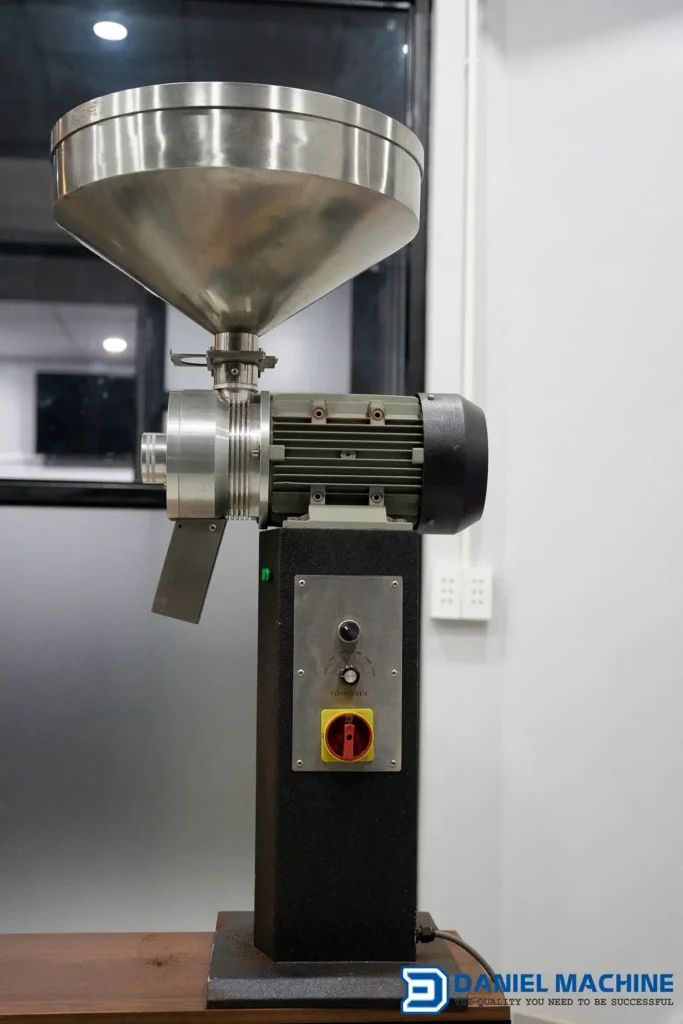A Starter's Guide to Industrial Coffee Grinder Models
A Starter's Guide to Industrial Coffee Grinder Models
Blog Article
Industrial Coffee Mill Overview: Boost Performance and Top Quality
In the affordable landscape of coffee production, selecting the right industrial coffee grinder plays a critical role in boosting both efficiency and product high quality. Comprehending the nuances of various grinder kinds and key functions-- such as customizable work setups and durable construction-- can substantially influence the final flavor account of the coffee.
Comprehending Mill Types
When picking an industrial coffee mill, recognizing the different kinds readily available is essential for enhancing both taste extraction and operational effectiveness. Both key types of grinders are blade grinders and burr mills. Blade mills utilize sharp blades that cut coffee beans right into irregular sizes, leading to unequal removal and possibly undesirable tastes. While blade mills are typically extra cost effective and ideal for small-scale procedures, they are generally not advised for commercial usage.

Eventually, choosing the appropriate kind of grinder is indispensable to maintaining high quality and efficiency in coffee manufacturing, making it important for companies to buy premium burr grinders for ideal results.
Key Functions to Consider
Choosing a commercial coffee mill requires careful consideration of a number of key features that can significantly influence both performance and the general coffee experience. Among the key aspects to examine is the grinding mechanism. Burr grinders are generally preferred over blade mills, as they offer a consistent grind dimension, which is essential for optimal extraction and flavor.
One more crucial feature is the grinder's capability. A versatile grinder with numerous settings permits you to tailor the grind dimension to various developing methods, enhancing the coffee's flavor account.
Review the grinder's noise degree, particularly in a hectic coffee shop or production atmosphere, where extreme noise can be turbulent. Spending in a mill that balances these functions can greatly enhance both operational performance and the high quality of the coffee offered.
Optimizing Grinding Refine
To accomplish the most effective cause coffee preparation, optimizing the grinding procedure is essential. The grind dimension considerably affects removal, taste, and overall high quality of the made coffee. Various developing techniques need certain grind dimensions; as an example, coffee requires a fine grind, while French press requires a rugged appearance. Understanding the connection between grind dimension and developing approach is go right here the first step in optimization.


In addition, checking the grinding rate can optimize the process. Slower grinding commonly produces less warmth, maintaining fragile flavors and aromas. On the other hand, faster grinding may produce too much warmth, adversely affecting the coffee's top quality.
Upkeep and Care Tips
Appropriate maintenance and treatment of industrial coffee grinders are important for ensuring optimum performance and durability. Regular cleaning is the structure of upkeep; residue click reference buildup can influence taste and grinding effectiveness. It is advisable to clean up the grinder after each use, wiping down the outside and eliminating any type of coffee premises from the burrs.
Additionally, evaluate the grinding burrs for damage. Dull burrs can compromise work consistency, so they should be replaced as required. Industrial Coffee Grinder. Periodically calibrating the grinder is likewise crucial, as this maintains the preferred grind size for numerous brewing approaches
Lubrication of relocating parts should be performed according to the supplier's requirements, as this minimizes rubbing and lengthens the life of the devices. It is important to use food-grade lubes to ensure security and compliance with health and wellness regulations.
Last but not least, keep the grinder in a secure and dry setting to stop rust and deterioration. By sticking to these upkeep and care pointers, drivers can improve the performance of their industrial coffee mills while making certain top quality output and expanded functional life.
Roi Evaluation
Reviewing the roi (ROI) for commercial coffee grinders is important for businesses looking for to enhance their coffee production abilities. A detailed ROI evaluation aids establish the financial stability of buying top quality click to investigate grinders, permitting services to weigh the initial costs versus potential gains.
To conduct a comprehensive ROI evaluation, services ought to think about numerous vital elements. Analyze the purchase rate of the mill, including installation and any essential modifications to existing facilities. Next off, calculate operational costs, including energy consumption, maintenance expenses, and labor effectiveness enhancements. High-performance mills usually result in reduced grinding time and boosted throughput, which can considerably enhance efficiency.
In addition, take into consideration the influence on product high quality. Industrial Coffee Grinder. Superior mills yield an even more consistent grind dimension, which can enhance taste profiles and customer complete satisfaction, eventually driving sales. By boosting the top quality of the last product, businesses can justify greater rates, resulting in boosted revenue
Verdict
In recap, an industrial coffee mill plays an essential role in enhancing both performance and product top quality within coffee manufacturing. Inevitably, the calculated investment in a trusted grinder adds considerably to enhanced revenue and competition in the coffee market.
In the competitive landscape of coffee manufacturing, picking the ideal industrial coffee grinder plays a crucial function in improving both effectiveness and product high quality. The 2 key kinds of mills are blade mills and burr mills. Within the burr grinder category, there are level burr grinders and conelike burr grinders, each with its advantages. Burr grinders are usually favored over blade mills, as they supply a constant work dimension, which is essential for optimum removal and taste.
In summary, an industrial coffee mill plays a critical function in improving both effectiveness and product quality within coffee production.
Report this page